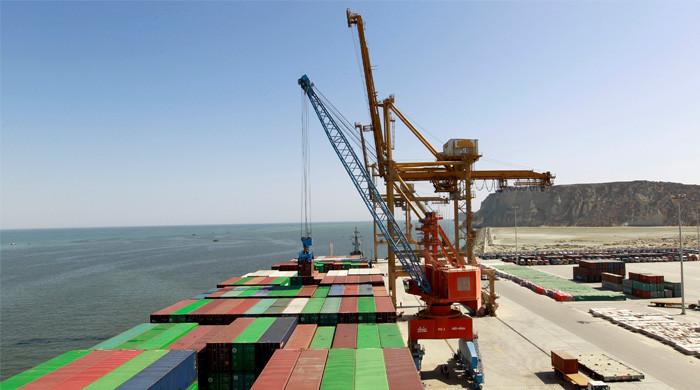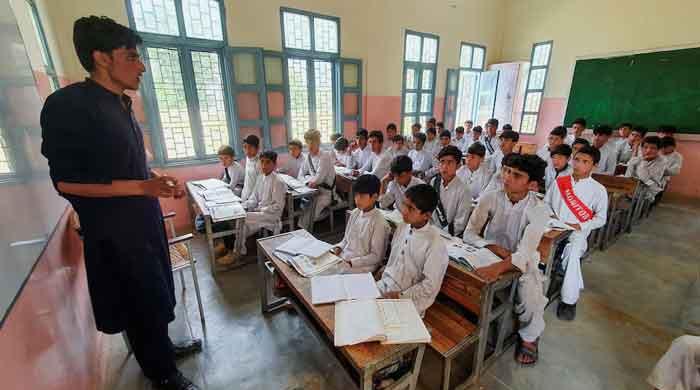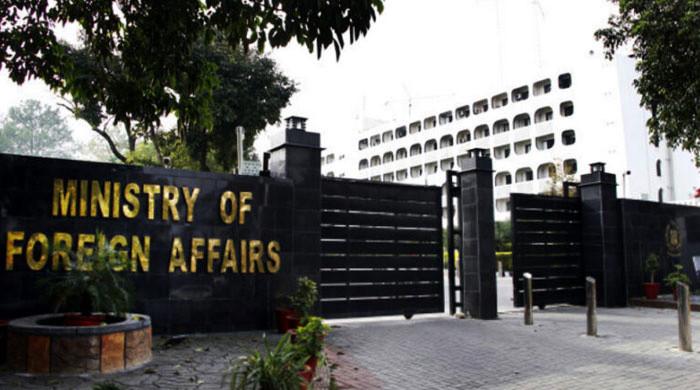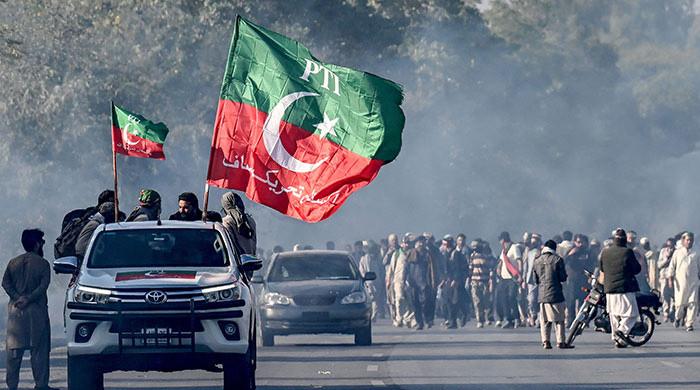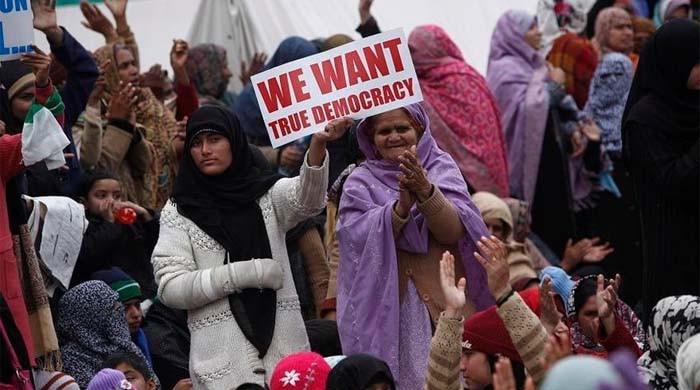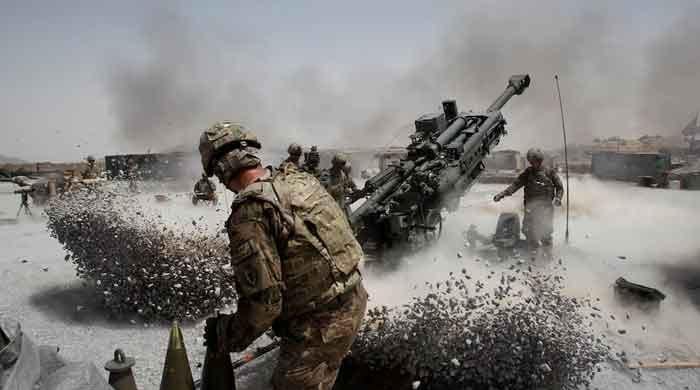Army’s role in politics: Time to right historic wrongs
Some former generals see things differently, blame politicians for enabling military takeovers
October 10, 2022
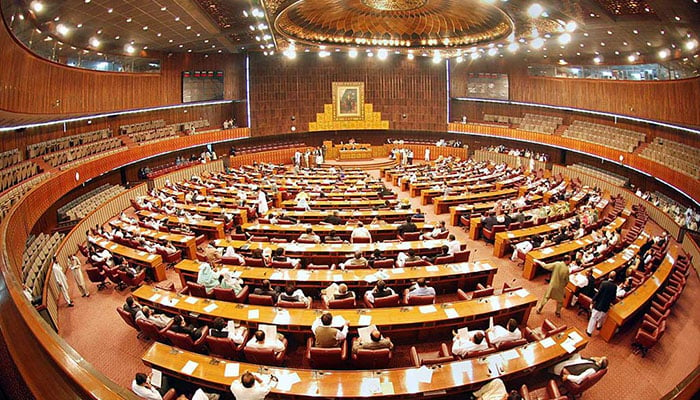
Former Inter-Services Intelligence (ISI) chief General Hameed Gul once told me that appointment of an army chief (Ayub Khan) as a defence minister was a “fundamental mistake” in the political history of Pakistan.
This move fired up then-army chief General Ayub Khan’s political ambitions and Pakistan’s first Martial Law followed soon after.
Gul made these remarks while commenting on the army’s role in politics during an exclusive interview.
“It was a blunder that should never have happened,” he stated.
Another mistake was committed by former prime minister Zulfiqar Ali Bhutto. To keep an eye on his political opponents, Bhutto created a political cell in the premier Inter-Service Intelligence (ISI) agency in 1974. Within three years, Bhutto himself became a victim of his own creation.
This role continued till the famous Mehran Bank case was taken up by the Supreme Court with regard to the 1990 elections and the alleged distribution of money by the ISI among the anti-PPP opposition leaders.
It was in 1996 when retired air marshal Asghar Khan, in a letter to the chief justice of Pakistan, enquired whether the ISI’s political cell continued to exist. When the SC sought a reply from the relevant authorities, they took nearly six years to say “not anymore.”
However, doubts lingered about the involvement of intelligence agencies in politics. In nearly all elections, parties and their leaders raised questions about political engineering by powerful quarters. These questions regarding political management even haunted Pakistan’s last two general elections, including former prime minister Imran Khan’s 126-day dharna against the 2013 election rigging, the making of his government in 2018 and even his recent ouster through a vote of no confidence in the parliament.
Some former generals see things differently and blame politicians for enabling military takeovers, either as a result of political confrontation or bad governance. They believe it’s the politicians who invite the army to intervene in politics and then celebrate the imposition of Martial Law.
But some generals concede that military rule damaged the image of the army, mainly when such regimes stretched their tenures beyond anyone’s wild guess. According to them, there was no justification for the 1958 Martial Law and in 1977, General Zia should have held elections within 90-days. They also agree that there was no reason for General Musharraf to launch a coup and then prolong his rule for nine long years.
Today, the question facing the people of Pakistan is: how should the line be drawn if we really want to move forward?
After the Asma Jillani case in 1970, the Supreme Court declared Martial Law illegal and unconstitutional but in 1981, in the Nusrat Bhutto case, the SC once again under the ‘law of necessity justified the 1977 Martial Law and history repeated itself again in the year 2001 with Zafar Ali Shah case, where the SC even allowed General Musharraf to amend the Constitution.
Thus, the "law of necessity" was first introduced in Pakistan by Justice Munir to justify Ayub’s Martial Law led to the justification of ‘misrule’ in Pakistan. Pakistan never returned to the truly democratic and constitutional path due to regular interference which gained ‘legitimacy’ from superior courts in the name of the "law of necessity".
All this made politics and politicians insecure. Unlike the 60s and 70s, where we witnessed ideological political leaders pursuing issue-based politics, the politicians now are mostly the product of non-party-based elections.
The trial and hanging of Zulfiqar Ali Bhutto in 1979 - which has now been established as a ‘judicial murder’ - completely altered the country’s political dynamics and turned politics into a business.
General Ziaul Haq’s greatest disservice was bringing corruption into politics, as he encouraged corrupt practices and punished only anti-regime politicians. But, as has often happened in Pakistan’s history, Zia’s strategy backfired when one of his own hand-picked politicians and former premier Mohammad Khan Junejo in his very first address declared that “democracy and Martial Law cannot coexist.”
When these lines were censored by the then-secretary of information, late Lt. General Mujeebur Rehman, the premier sacked him. He also announced civil liberties and press freedoms. These steps led to the return of Benazir Bhutto from self-exile.
These reforms made General Zia quite unhappy but it was Junejo’s decision to probe the Ojhri camp disaster and Geneva Accord, which caused him to lose his premiership.
If one traces the politics between 1984 and 1997, one can see a clear pattern of how establishments used politicians and political parties against each other. The creation of IJI and funding of parties to change the course of elections are some of the manifestations of this alleged intervention.
All these actions made the appointments of the army chief, the ISI chief or any extension in tenures or even transfers, postings and promotions within the army ‘headline news.’
Can all this be reversed and will we be able to return to normalcy? The answer depends on the behaviour and approach of both the military establishment and the politicians if we really want to make Pakistan a social welfare state and not a security state.
The establishment has to establish its claim of being ‘neutral’ in letter and spirit. This also includes depoliticisation of the role of the intelligence agencies. On the other hand, political parties must strengthen institutions and prove their capacity to rule through better governance for which institution-building is key.
During a recent debate, I proposed that the appointment of the army chief should be like that of the chief justice of Pakistan. This would help the government to keep itself away from controversies like extensions or appointments. In fact, it may also bust the myth of giving extension in the name of national interest.
The superior judiciary must also play a role in burying controversial laws like the ‘doctrine of necessity.’ Without the rule of law and a strong criminal justice system, no country can set its direction on the right course.
Another factor that has damaged the image of all those who matter is the massive increase in public institutions' commercial interest, which has led to corrupt practices. This can only end if we establish a highly credible institution of ‘accountability for all.’
Pakistan was created through a democratic and constitutional struggle, but it became a major casualty in the last 75 years. It is time to right the historic wrong.
The writer is a columnist and analyst for GEO, The News and Jang
Twitter: @MazharAbbasGEO





